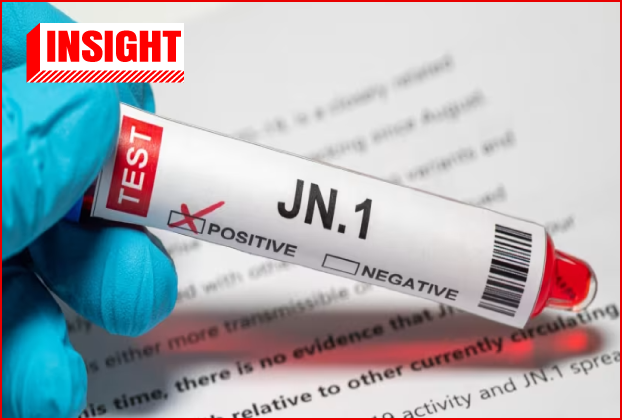The ever-evolving world of COVID-19 has thrown another curveball our way with the emergence of the JN.1 variant. This Omicron subvariant, first detected in August 2023, has rapidly gained ground, raising concerns about its potential impact on the pandemic’s trajectory.
Rapidly Spreading:
JN.1’s most alarming characteristic is its rapid global spread. Initially identified in the Luxembourg, it has quickly become the dominant variant in many countries, including the UK, the US, and India. The World Health Organization (WHO) has designated JN.1 a “variant of interest” due to its concerning rise (source: UN)
Potential for Immune Evasion:
One factor contributing to JN.1’s success might be its potential for immune evasion. Compared to its parent variant, BA.2.86, JN.1 carries an additional mutation in its spike protein, the key that unlocks human cells. This mutation might allow the virus to bypass our immune defences more effectively, leading to increased transmissibility.However,above further researches necessary to get a clear idea about this new variant. (Source: CDC)
Limited Data on Severity and Vaccine Efficacy:
While JN.1’s rapid spread is worrisome, data on its severity and impact on vaccine efficacy is still limited. Initial reports suggest that symptoms associated with JN.1 are similar to those of other Omicron variants, such as fatigue, cough, and sore throat There is also no evidence to date that JN.1 causes more severe illness than previous strains.(Source: CDC )
However, the effect of JN.1 on vaccine effectiveness is still unclear. Studies are ongoing to determine whether existing vaccines provide adequate protection against this new variant. While preliminary findings suggest some reduced effectiveness, the overall protection against severe illness and hospitalization is likely to remain strong (source:BBC).
What We Know So Far:
JN.1 is a rapidly spreading Omicron subvariant.
It carries a mutation that might allow it to evade immune defenses.
Symptoms are similar to other Omicron variants.
Data on severity and vaccine efficacy is limited.
What We Can Do:
Despite the uncertainties surrounding JN.1, we can still take steps to protect ourselves and our communities:
- Practice good hygiene measures like handwashing and mask-wearing.
- Maintain physical distancing in crowded settings.
- Monitor for symptoms and get tested if you experience any.
- By staying informed and taking preventive measures, we can navigate this new wave of the pandemic and mitigate the impact of JN.1.
Continued Vigilance:
The emergence of JN.1 serves as a reminder that the COVID-19 virus continues to evolve. While it’s natural to feel apprehensive, we can find solace in the ongoing research efforts and the effectiveness of existing vaccines and preventative measures. By remaining vigilant and adapting our strategies as needed, we can collectively overcome this new challenge and continue to move forward in the fight against COVID-19
Meanwhile, Dr. Chandima Jeewandara, Director of the Allergy Immunology and Cell Biology Unit at the University of Sri Jayewardenepura, stated to the media that although no patients infected with JN.1 have been identified thus far in Sri Lanka, the swiftly spreading fever in Sri Lanka exhibits similar symptoms. He urged the public to exercise caution and remain vigilant in light of the situation.
NOTE: This information is based on the latest available data as of December 22, 2023. The situation surrounding JN.1 is constantly evolving, and it’s crucial to stay informed through reliable sources like the World Health Organization (WHO) and your local health authorities.

Title:JN.1 Variant: A New Omicron Subvariant on the Rise(Covid 19 Update)
Written By: Kalana KrishanthaResult: Insight






